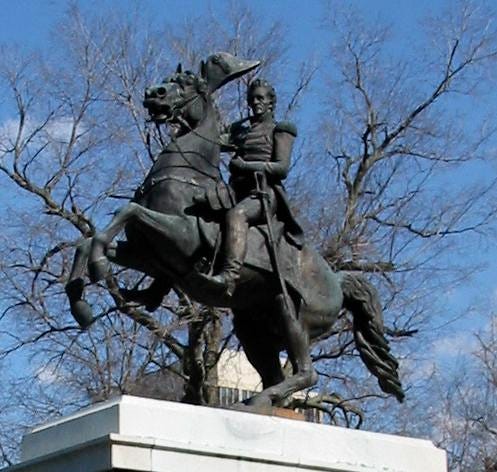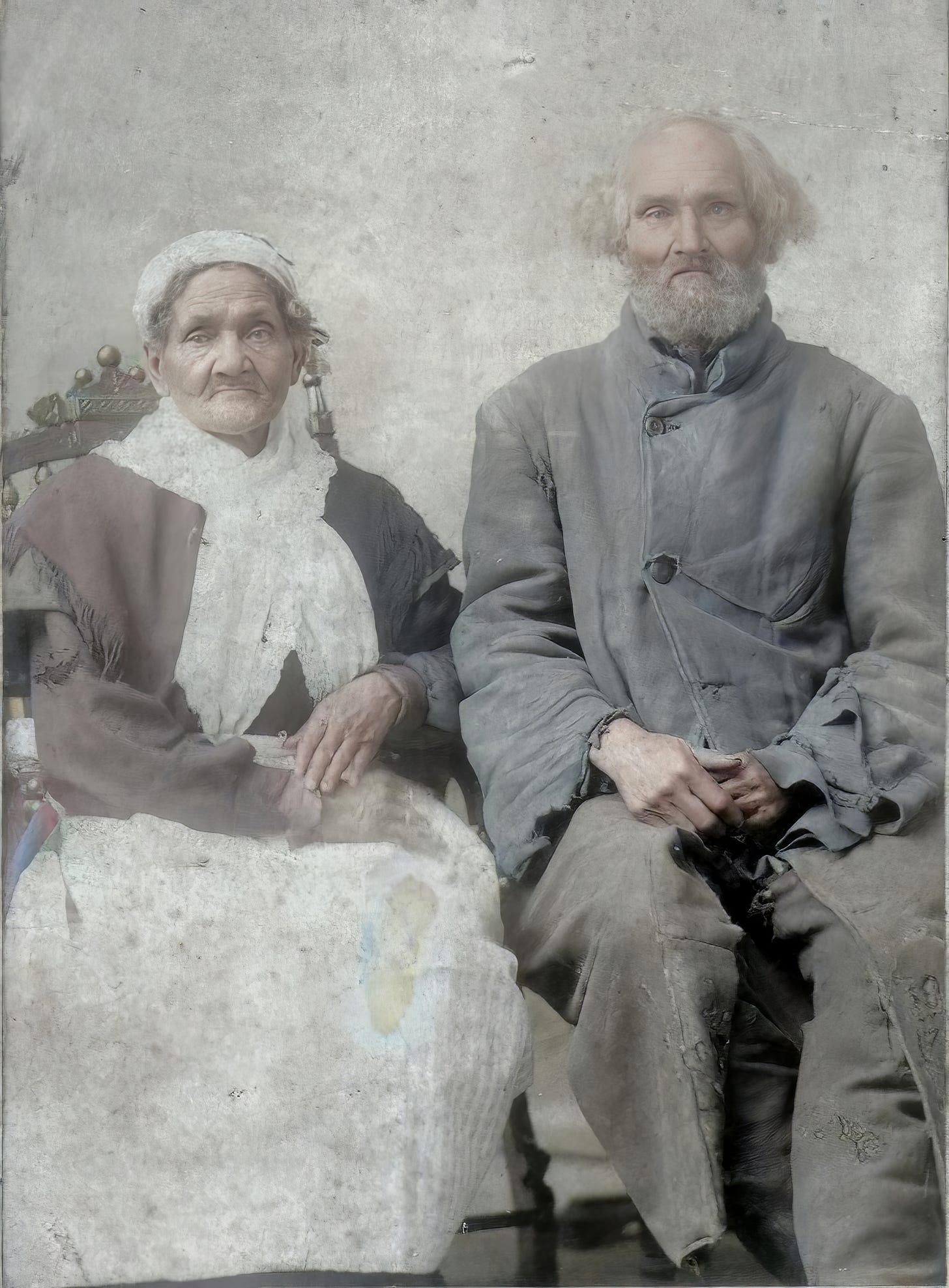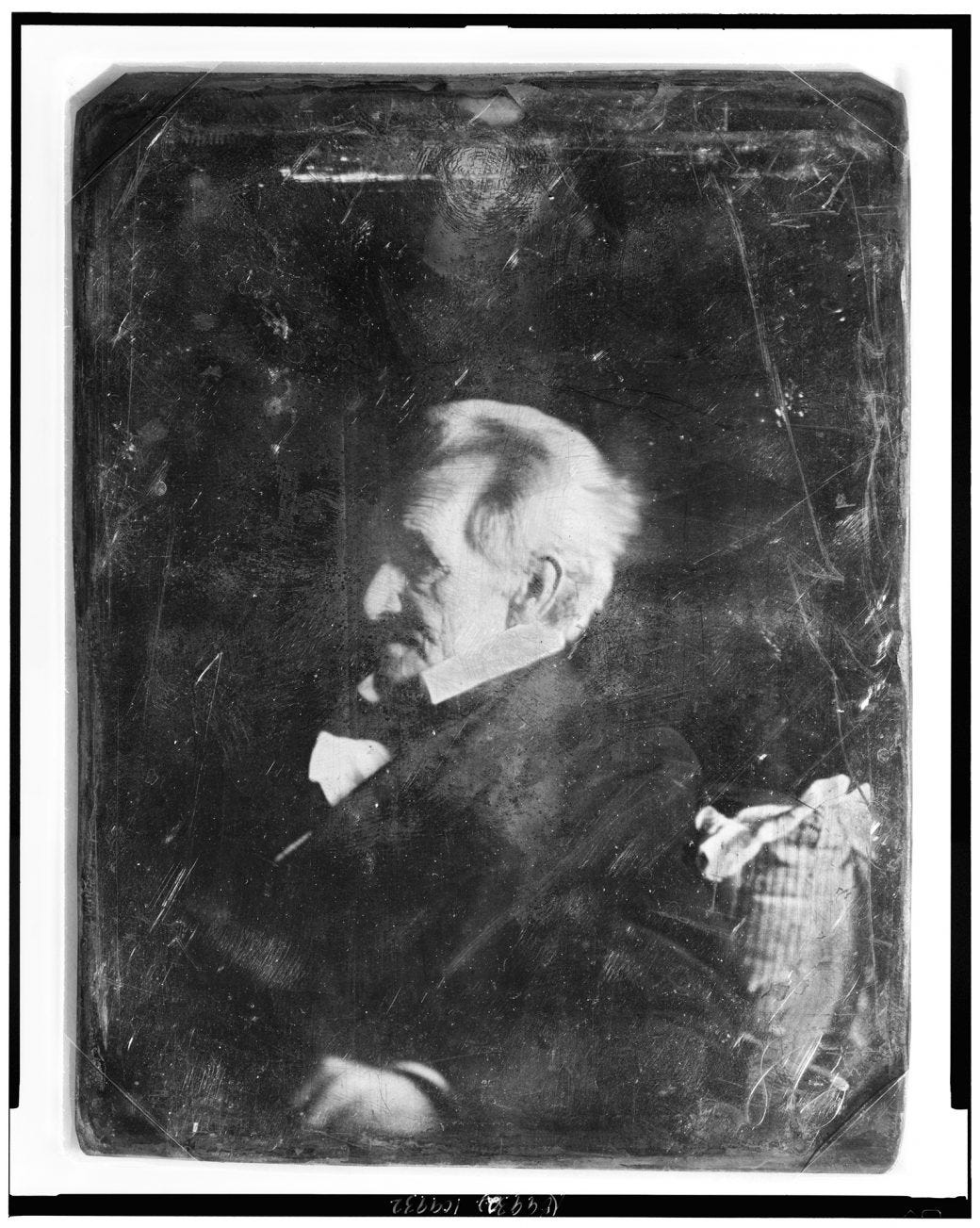In late 2024 a cemetery believed to be the burial place of those who were enslaved at Andrew Jackson’s home, The Hermitage, was located in Nashville, TN. You can read more about this discovery on The Hermitage’s website.
Given the previously mentioned negative impression of Andrew Jackson that I had been given from other readers of presidential biographies, I was not surprised to read the accounts about his actions regarding slavery. Jackson, a slave owner, did nothing during his time in power to advance the emancipation of enslaved people in America. Unlike Washington and Jefferson who grappled with the morality of slavery, Jackson did not seem to have any qualms with the institution. In fact, there were a couple of things Jackson did that showed his disregard for the quality of life for those enslaved during his time.
In 1804 when an enslaved male ran away from Jackson’s plantation, Jackson put an advertisement in the Nashville Tennessee Gazette offering a $50 reward for any person willing to take the enslaved man to Jackson or secure him in jail. He added to this, “ten dollars extra, for every hundred lashes any person will give to him, to the amount of three hundred.”
In the summer of 1835, a controversy occurred in Charleston, South Carolina, when a mob of people obtained abolitionist literature being sent to the city and burned the mailings in a bonfire to the cheers of a crowd of about two thousand. Jackson, who was president at the time, acknowledged that the mailing of the abolitionist literature was legal, but at the same time, he called for intimidation of Southerners willing to engage with the material. He stated:
“Few men in society will be willing to acknowledge that they are encouraging by subscribing for such papers this horrid and most wicked procedure; and when they are known, every moral and good citizen will unite to put them in coventry, and avoid their society. This, if adopted, would put their circulation down everywhere, for there are so few so hardened in villainy, as to withstand the frowns of all good men…In every instance the Postmaster ought to take names down, and have them exposed thro the publik journals as subscribers to this wicked plan of exciting the negroes to insurrection and to massacre.” from Brown, D.S. The first populist: the defiant life of Andrew Jackson
Jackson did provide lawyers to a group of enslaved individuals who were accused of killing another enslaved person at a party, and Jackson defended an enslaved man named Dinwiddie, who was accused of poisoning the horse of a neighbor. While these might be interpreted as acts of compassion, in reality, it seemed that he most likely did these things primarily to convey his own reputation as being able to control his enslaved population.
Hannah Jackson’s account of his death
During my reading of the biographies of Andrew Jackson, I did a search to see if Jackson ever had any connections to my city, Cincinnati, Ohio. In doing so I came across an account first published in the Cincinnati Commercial on June 22, 1880, about a woman named Hannah Jackson, who had been enslaved by Andrew Jackson. She was interviewed by the paper on account of the unveiling of the Jackson equestrian statue in Nashville, Tennessee.

The article states that Hannah had been present at the death of Andrew Jackson, who was seventy-eight at the time of his death. Hannah was also present at the time that his wife, Rachel, passed away and apparently Rachel died in Hannah’s arms. (There is an enslaved woman who appears with Rachel throughout the movie I watched, The President’s Lady, who served as a similar sort of support to Rachel throughout her life as Hannah did. I looked up who this character in the movie was supposed to portray and interestingly her casted name was Moll, the name of the enslaved woman who served Martha Washington.)

At the time of the newspaper interview, Hannah was eighty-nine years old. She had been enslaved by the Jackson family until the Civil War. Hannah was purchased by Jackson at the age of eight. In the interview she is described as, “a cinnamon-colored mulatto, with well-shaped and regular features, a peculiarly strong chin, dark eyes that exhibit no sign of age, and when animated in conversation fairly sparkle with spirit and intelligence.”
In the interview, Hannah described Jackson’s last words that he stated to the group in the room with him, which included both enslaved people as well as white relatives.
“I want you all to meet me in Heaven. My words are for you all. God is no respecter of color. I hope to be saved through the blood of Christ. I am in God and God is in me; He dwelleth in me and I am in him.”
Given the choices Jackson made while he was in a position of power, his words at the time of his death seem quite contradictory to his actions. This story of Jackson cementing his legacy in his last days reminds me of the other individual I wrote about, Senator Dixon Hall Lewis, who also seemed to adopt a different legacy in his death than what had played out in his life. In one way Jackson’s words were consistent with his life in that he did seem to believe he had a purpose in guiding others, though oftentimes to the observer that guidance seemed flawed.
I learned that a descendant of Hannah Jackson named Dorothy Price-Haskins wrote a novel called Unholiest Patrimony: Great is the Truth and It Must Prevail that accounts for the birth of Hannah’s daughter named Charlotte from an alleged sexual relationship between Hannah and Andrew Jackson. The novel is based on an unpublished journal of the family. It is on my growing TBR list that is developing from reading these Presidential Picks.
I hope you enjoyed reading about Old Hickory, now onto reading about the Little Magician (Martin Van Buren).
Sources:
Brown, D. S. (2022). The first populist: the defiant life of Andrew Jackson. Scribner.
Cheathem, Mark R. “Hannah, Andrew Jackson’s Slave.” HUMANITIES, March/April 2014, Volume 35, Number 2.
“Old Hannah Jackson.” The Tennessean. Nashville, TN. 23 June 1880. Excerpt of a story originally published in the Cincinnati Commercial by W.G. Terrell.






Hannah Jackson's story reminds me of Bill Yopp, an enslaved man who was an aide to a Confederate soldier and who I wrote about last year: https://thesilentsod.substack.com/p/the-legacy-of-bill-yopp
What's shared about Hannah in the interview in the Cincinnati Commerce suggests she was a "loyal slave" and Jackson a "good master." The more contemporary article by Cheathem that you cited indicates that she emancipated herself from the Jackson family during the Civil War.
As always, I'm glad to be learning about the lives of those involved with the president as well as the president himself in this Presidential Picks series.
Thanks to those who read along about Old Hickory. I definitely hope to read more about Hannah’s life in that book I mentioned. What a crazy but interesting time of our country. Now onto Van Buren who is one of the presidents who stayed at the restaurant Golden Lamb here in Ohio, I might just have to make a trip ;).